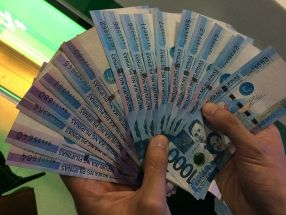Local bond market stable, says Treasury
MANILA, Philippines – Unlike the stock and foreign exchange markets, the local bond market has remained stable during the first three months of the Duterte administration, National Treasurer Roberto Tan said.
“Based on team analysis, government bond yields are generally stable year-to-date,” Tan said in a text message to The STAR.
“No reason to be concerned at this stage,” he said.
Credit default swaps, which serve as insurance for bondholders for risks, are also hovering at levels during the beginning of the year, suggesting stable investor sentiment.
The government borrows from local and foreign investors to finance its budget deficit and pay existing debts.
One way is through the issuance of Treasury bonds and bills, which charge a specific interest for a particular payment period. Government data showed the benchmark 91-day T-bill actually recorded yield drops.
Specifically, the paper, which serves as benchmark for short-term loans, traded at 1.605 percent by the end of the third quarter, down 25.6 basis points from June 30 when President Duterte took over.
But across the yield curve, yields had been rising.
For instance, yesterday’s auction of re-issued seven-year papers attracted less investors than programmed with rates increasing 41.9 basis points to 3.605 percent.
Tenders reached only P22.08 billion, below the P25-billion program. After capping the rate, P11.77 billion was sold.
“As can be gleaned from the offer, there remains heightened uncertainty, particularly on the direction of the Fed rates...A lot of players do not know how to price for now,” Tan said.
The same reason of impending rate hike by the US Federal Reserve was given by economic managers over a stock and foreign exchange market rout that came after Duterte lambasted the US and European Union.
In September alone, the Philippine Stock Exchange index dropped 2.02 percent, while the peso lost a higher 4.12 percent versus the dollar.
Higher rates in the US, the world’s safe haven, attract investors and keep capital away from emerging market like the Philippines.
“Movement in yields is really driven by a combination of factors, both external and internal, though recently, we believe external risks are driving it,” Tan said.
“Bond investors know the fundamentals and credit story of the country very well,” he added.
But Emilio Neri Jr., lead economist at Bank of the Philippine Islands, disagreed. “I think it will be very hard not to consider our unclear diplomatic relations as having an impact,” he said.
“There is really no rocket science on telling what sways the market, but definitely, the bond market was not spared from the current selloff,” Neri said.
- Latest
- Trending




























